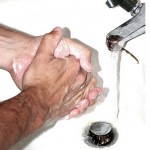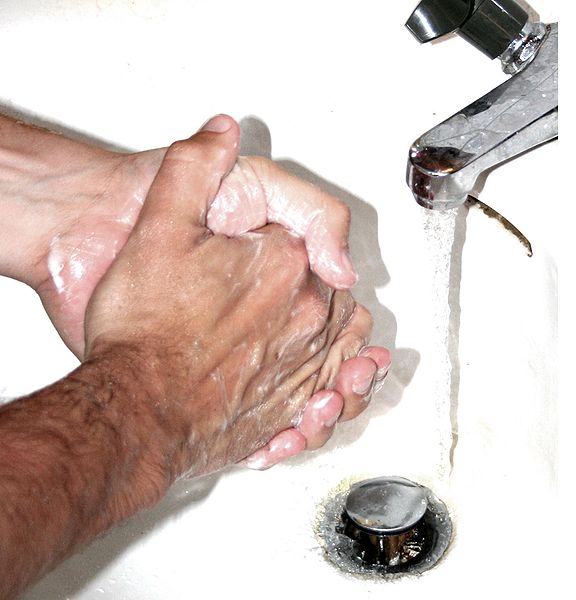 New patient safety guidelines require increased vigilance in handwashing by healthcare providers. Previous guidelines established by OSHA required soap and water handwashing between every patient contact. Over the past few years, alcohol based handwashing agents have been introduced to the hospital setting raising the question about their efficacy and risk.
New patient safety guidelines require increased vigilance in handwashing by healthcare providers. Previous guidelines established by OSHA required soap and water handwashing between every patient contact. Over the past few years, alcohol based handwashing agents have been introduced to the hospital setting raising the question about their efficacy and risk.
An article By Gina Pugliese, RN, MS; Judene Bartley, MS, MPH, CIC; Tammy Lundstrom, MD, reviews the topic of the use of alcohol based handwashing solutions. They state:
“The evidence is clear; HCW compliance with hand hygiene can reduce the 2 million healthcare-associated infections that occur in patients annually, as well as reduce the risk of infections transmitted to workers. But the use of these waterless alcohol-based hand antiseptics, the centerpiece of the new CDC guideline, has been perceived to be in conflict with existing healthcare safety regulations. These include, for example, handwashing requirements from the Occupational Safety and Health Administration (OSHA), flammability issues from the National Fire Protection Agency (NFPA), and corridor obstruction issues from Centers for Medicare and Medicaid Services (CMS).”
The article goes on to discuss the fire risk related to the use of alcohol based handwashing solutions. As CMS tightens enforcement of handwashing in the healthcare workplace, this information is essential for CRNAs. Click here to read the article and return to PROCRNA.COM to share your comments. ( If the link takes you to an ad, wait about 5 seconds and it will go on to the article)
